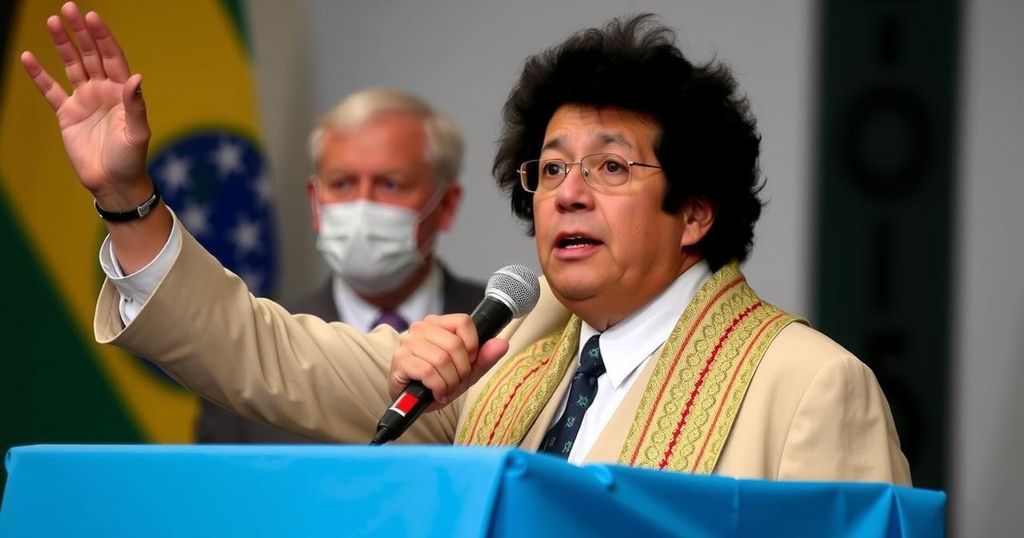Bolivia’s upcoming judicial elections are controversial due to prohibited campaigning and growing voter disillusionment. Unique in the world for electing top judges, this system has faced criticism for politicizing the judiciary. With ongoing power struggles between political leaders, only four of nine judges’ seats are up for election. The implications of these elections extend to Mexico, which is observing closely as it undergoes similar reforms.
In Bolivia, the upcoming judicial elections are shrouded in controversy as campaigning for candidates is officially prohibited, yet some have found creative means to promote themselves. With a unique system in place where citizens directly elect top judges, there exists growing disillusionment among voters who feel increasingly disconnected from the intricate ballot. Bolivia’s approach stands apart globally, a system mirrored only recently in Mexico due to former President Andres Manuel Lopez Obrador’s reforms.
The election process is plagued by a history of politicization, as critics argue that it transforms judges into political pawns rather than impartial arbiters. Remarkably, over a decade ago, Bolivia shifted to this electoral system, abandoning qualifications-based appointments. Despite warnings from international experts regarding the risks of elected judiciaries diminishing democratic integrity, Bolivian officials express their concerns about the murky election process.
In a significant power struggle, current President Luis Arce confronted former President Evo Morales, extending the election timeline to consolidate his influence amid rising tensions within their party. As this election unfolds, only four of the nine seats on the influential Constitutional Court are contested, raising questions about the genuine scope of reform. Generally low voter engagement reflects the public’s frustration with the electoral process, as evidenced by prior elections resulting in significant numbers of blank or invalid votes. Morales’ previous policies and the subsequent backlash contributed to escalating instability, culminating in his resignation amidst allegations of electoral fraud. This occurrence highlights the unpredictable ramifications of politicized judicial systems.
With the Mexican government observing Bolivia’s elections closely, the outcomes may influence international perspectives on judicial reforms, emphasizing the critical need for transparent and accountable systems.
Bolivia holds a unique position as the only nation where citizens directly elect their top judges. This electoral system, implemented over a decade ago, marks a departure from traditional methods based on qualifications and expertise. The recent history of Bolivia’s judicial elections illustrates a complex interplay of political power and public sentiment, often leading to skepticism about the legitimacy of elected jurists. As political dynamics evolve, the implications of these elections extend beyond national borders, prompting international attention, particularly from Mexico, which is undergoing similar reforms under its current administration.
The forthcoming judicial elections in Bolivia epitomize the tension between democratic ideals and political reality. Voter apathy, concerns about judicial impartiality, and the significant influence of political leaders underscore the risks inherent in this electoral model. With the international community closely monitoring these developments, the outcome may not only shape Bolivia’s judicial landscape but also serve as a critical case study for other nations considering judicial reforms. The need for transparency and public trust remains paramount in preserving the foundations of democratic governance.
Original Source: www.voanews.com






